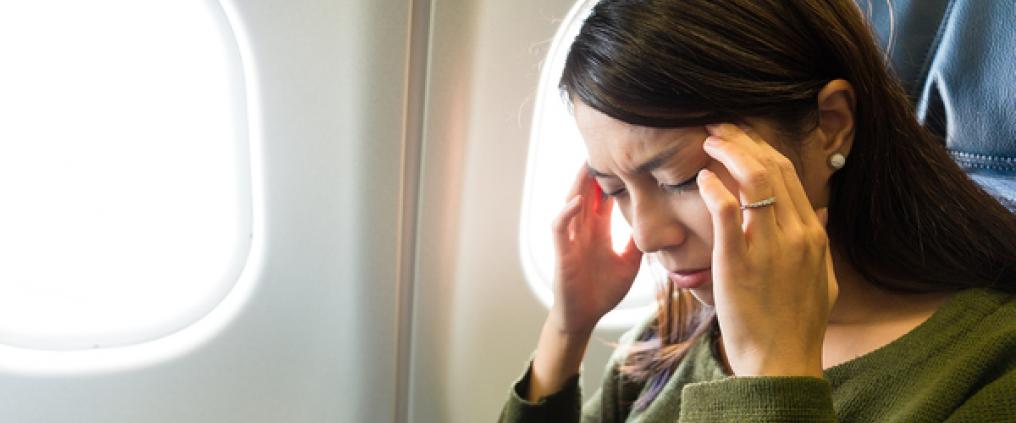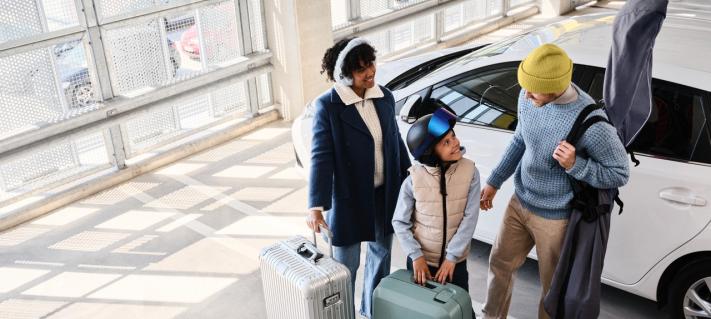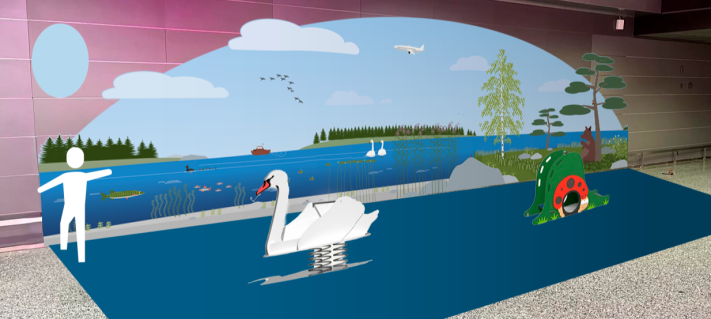Imagine this: a tight, confined cabin where seat belts must be fastened and you won’t be able to exit before landing at the destination. Your heart starts pounding.
Fear of flying is fairly common, but for those who suffer from a genuine panic disorder, flying can be even more anxiety-inducing. A panic attack is an extreme fear reaction, during which a person is afraid of losing control completely – or even dying. When the attack hits, the overwhelming feeling is often: I need to get out.
Even though flying is one of the safest modes of transportation, this knowledge rarely sooths the mind of a person with a panic disorder. No statistics assuring that it’s more likely to die or be injured at home than on an aircraft will help.
For 30 years psychologist Paula Kinnunen has worked with people suffering from a fear of flying – and even written a book on the subject. She has led courses helping people cope with their fear, and has even witnessed several panic attacks in the airplane cabin during her career.
"You can get used to flying even if you have a panic disorder," Kinnunen promises. "As long as you realize the severity of your problem and are willing to work with it."
Psychotherapist Benina Jakobson also helps people with panic disorder – most of whom also suffer from fear of flying.
"During a panic attack, a person’s breath starts to race, their heart rate increases. They feel a sense of pressure in the chest, and their eyesight may blur. It’s important to know that you cannot die of a panic attack."
Here are a few tips put together by professionals on things that may ease the symptoms during a flight:
-
Avoid coffee and alcohol
Caffeinated drinks and alcohol can increase your heart rate, so avoid them before and during a flight. A person suffering from a panic disorder may misinterpret the increased heartrate and believe they are getting a panic attack. Drinking a lot also means you have to use the cabin toilet more often, which won’t help to relax during the flight.
-
Talk to the cabin crew
Often the knowledge that someone else is aware of your fear can alleviate it. You should tell the cabin crew that you suffer from fear of flying, so they can, for instance, notify you of upcoming turbulence or check on your well-being during the flight.
-
Try relaxation exercises
There are several different relaxation exercises available through mobile apps or you can enrol in a course that teaches them. These exercises can lower your pulse and blood pressure and help you concentrate on other things besides your fear flying.
-
Try to turn your thoughts around
Fear of flying should be taken seriously, especially if you suffer from panic attacks. It’s good to prepare by going through your usual thoughts during a panic attack on-board. For instance, you may feel in danger because the doors are locked and there’s no exit from the cabin. You can then try to turn this thought around by reasoning that, in fact, you are safe exactly because the doors are locked and sealed. Turning the usual panic-related thoughts on their head may help some people cope with their fear.
-
Redirect your thoughts
People who suffer from a panic disorder often pay close attention to little details and sounds on the flight, as if looking for reasons for their own restlessness. Concentrating on other activities may offer some alleviation. Try audio books, crossword puzzles or other distractions. Also talking to other passengers or crew members – or even paying attention to the airline staff’s work routines – can be a suitable distraction.
-
Medication can offer help
Seeking a prescription to sedative medication and having them available in-flight can help you relax, even if you don’t end up taking it.
-
Seek help from therapy
You should not try to cope alone with a panic disorder and related fear of flying. Even a couple sessions with a therapist can give you tools to make flying more comfortable. There are also special courses to help you cope with fear of flying.
Whether you work with a psychotherapist or a psychologist who specializes in panic disorders, they will most likely go through your experience during a flight and the fear-related physical symptoms. People who suffer from panic attacks can be ashamed of their disorder, so it is important to discuss the situation in advance. Panic attacks often go unnoticed by other people. Seek help to ease your situation and fly with a more reassured mindset.
Read five intriguing facts about safety on board



